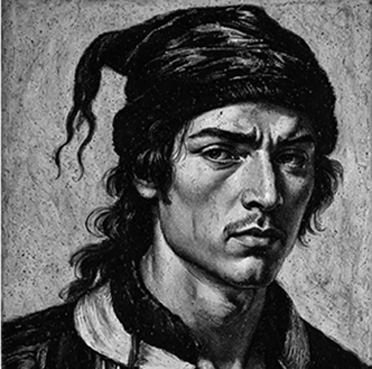Walkara - the Greatest Horse Thief
Walkara grew up in the Timpanogos area, part of what is now Utah, and as a boy he was fascinated by the first horse he ever saw. Over time, that fascination turned into a powerful hunger—for horses, for power, and for recognition as a great leader. Horses weren’t just useful for travel and battle—they were a symbol of wealth and strength. And Walkara wanted more than anyone.By the 1830s, Walkara had become an expert in the desert landscape of the Southwest. He knew every waterhole, trail, and canyon from Utah to California. He used that knowledge to raid Mexican ranchos in California, where horses were everywhere and the ranchers weren’t prepared to defend them. Early raids taught him the weaknesses of his enemies and the value of stealth and speed.
But Walkara didn’t stop with horses. He also became deeply involved in the Native slave trade. He captured women and children from other tribes and sold them to Spanish settlers or traded them for horses and gold. This made him even richer and more feared.
By 1835, he had a band of 200 skilled warriors, all on horseback and armed with guns. They raided California and New Mexico, stealing horses and spreading fear. Even seasoned mountain men like Pegleg Smith and Jim Beckwourth recognized his power. In fact, they teamed up with him on one of the boldest horse raids in history.
In 1839–1840, the group planned a massive heist. Beckwourth went ahead to spy out the ranches, while Pegleg and Walkara gathered their forces. On a single night, they hit ranches across Southern California. Walkara alone stole over a thousand of the finest horses from Mission San Luis Obispo. In total, more than 3,000 horses thundered through Cajon Pass, bound for Utah.
The Californios gave chase, and a fierce running battle broke out. Pegleg lost close friends and family in the fight, but they made it through. At a desert spring near Mojave, Walkara turned the tables—ambushing the tired Spanish pursuers and stealing their horses too, leaving them to walk home on foot.
In the end, Walkara became a legend. His men rode Spanish horses with fine saddles and carried the best American rifles. He was known as a friend to the American mountain men and a deadly enemy to the Californios. By the early 1840s, his name was spoken with fear and respect from the Rockies to the Pacific.

Peg-leg Smith
Jim Beckwourth
William Wolfskill
Old Spanish Trail: Cajon Pass - Crowder Canyon
Old Spanish Trail
Emigrant Pass - Old Spanish Trail